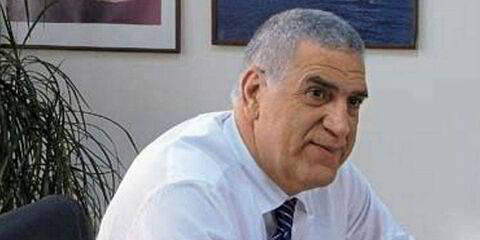“If you are fed up with too many ships, then buy land. As Mark Twain said: ‘They’re not making it anymore’.”
Advice from hedge fund manager turned country boy, Jay Goodgal, who has a new found interest in ploughing and reaping after noticing that rather a lot of ships continue to pour out of the yards.
(Goodgal ‘forgets the ship; buys the cargo’ with float)
“We believe that the spot dry bulk market is in line for a positive jolt as three key pieces have lined up positively for the first time in several months: rising steel prices, wider steel margins and cheaper imported iron ore into China.”
But Omar Nokta of Clarkson Capital Markets appears to be keeping faith in the dry cargo market.
“We remain optimistic regarding the fundamental long-term dynamics of the dry bulk industry.”
Star Bulk chief, Petros Pappas, is upbeat about prospects for the dry bulk sector as vessel supply and cargo demand come into a healthier balance.
"The market fundamentals including the low cost of oil and the negative fleet growth is reassuring for, at least, the medium term prospects of our industry."
And it is not just the dry bulk sector. Tanker owner Nikolas Tsakos of TEN sees grounds for optimism.
“The idle fleet is negligible in reality, so we are finally enjoying supply/ demand equilibrium again….. if things stay as they are, we are definitely on track for a return to more acceptable, sensible charter levels.”
More good news from Clarksons, this time for the struggling containership sector.
(Boxship charter market could be set for take-off)
Not a case of being so flush that money is going down the pan. But ensuring budgets are spent to avoid future cutbacks. Kristian Johansen of TGS comes up with an explanation for why the seismic market has held up better than expected.
(Seismic chiefs see need for further vessel withdrawals)
“Through adversity and crisis opportunities can arise.”
Positive thinking from Hellenic Hull Mutual manager, Ilias Tsakiris, but then there is something of a philosophical tradition in his part of the world.
(Hellenic Hull Mutual Seeks fresh course)
“I think there will be less can kicking this time round, as the regulators are now sitting guests in the European banks and so the true capital costs of doing nothing will be much higher.”
Citigroup banker Michael Parker warns there will be less of a lifeline for the dry bulk sector as regulators continue to scrutinise Europe’s banks.
“The significant difference today is that the hedge funds and other buyers of distressed shipping debt are not interested in the dry bulk sector either because they are already ‘stuck’ with exposure in one form or another, or see better opportunities in the energy sector with distress there."
Dontcha just love distress. Parker identifies another reason prospects of a rescue are lower.
(Fewer solutions’ as dry bulk trough alters landscape)
“There are any number of reasons why someone might turn it off, including security reasons. But if it has been turned off for two days near one of these locations, they are likely trying to hide it. It may be a red light for the client to get in touch with these people.”
Banks and other financial institutions want to use AIS vessel tracking to ensure compliance with sanctions according to VesselsValue.com's Paddy Stern.
(New vessel tracking service keeps money men up to date)
And it is not just sanction busters who are taking an interest in geo-location technology. Patent trolls are targeting the shipping industry with hundreds of lawsuits as they try to capitalise on geo-location technology according to Daniel Nazer of the Electronic Frontier Foundation.
(Tracking system patent holder in multiple shipping firm claims)





